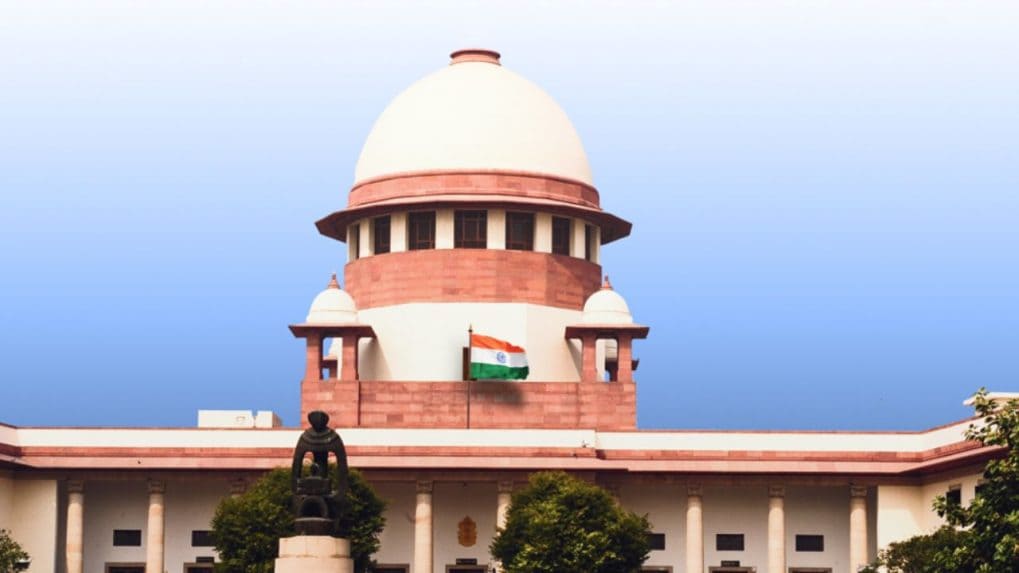How it Works
WPP, Havas, Omnicom: Are advertising’s biggest holdcos recasting agencies as AI Operating Systems?

In a constitutional challenge that could reshape the contours of India’s digital economy, Manav Pradeep Arya — a leading chess player and gaming industry consultant — has filed a writ petition in the Supreme Court questioning the constitutional validity of the Promotion and Regulation of Online Gaming Act, 2025. The petition underscores not just economic and entrepreneurial disruption, but also a deeper debate over federal overreach and the erosion of state legislative powers.
Arya’s plea is the contention that the Union government’s move to impose a nationwide prohibition on “online money gaming” has overridden the states’ exclusive authority under Entry 34 of the State List, which covers betting and gambling. Several states, including Tamil Nadu, Karnataka, and Nagaland, have enacted their own frameworks regulating or licensing skill-based gaming. The petition argues that the new central law disrupts this delicate federal balance by superseding existing state statutes without consultation or empirical justification.
“The law intrudes upon a subject constitutionally reserved for the states. Digital transmission does not magically transform state subjects into Union subjects,” the petition asserts, calling the legislation a “colourable exercise of power” that disregards India’s federal structure. The petitioner Manav Arya is represented by advocates Kumar Visalaksh, Pranav Bansal, Jay Sayta and Vibhor Sharma.
Arya’s company, Tetrafolia Skill Games Pvt. Ltd., recognized as a DPIIT-certified startup, was on the verge of launching Funto Ludo, an online skill-based version of the popular board game, along with digital chess and other compliant gaming platforms. The company is a member of E Gaming Federation. This makes second member of E Gaming Federation to file a case against the government, first being Head Digital Works, parent of A23.
The petition states that having adhered to all regulatory norms — from KYC and GST registration to responsible gaming standards — the company could not initiate operations after the enactment of the new law. The petition says the Act “crippled the Petitioner’s business operations and livelihood,” causing severe financial losses and undermining investor confidence in the burgeoning online skill gaming space.
The petition alleges that the Act was passed in haste, without stakeholder consultation, industry feedback, or empirical assessment of alleged harms from online gaming. Arya has argued that such legislative overreach not only violates the fundamental right to trade and profession guaranteed under Article 19(1)(g) but also the right to equality and livelihood under Articles 14 and 21.
Further, the petition challenges specific provisions — Sections 21(g), 5, 6, 7, and 9 — as unconstitutional, calling them excessively broad and lacking rational classification between games of skill and games of chance. The petitioner has also urged the Court to restrain the Reserve Bank of India from issuing informal directions to block legitimate transactions related to skill gaming in the absence of a formal notification bringing the law into force.
The plea notes that several similar matters challenging online gaming prohibitions have already been tagged before the Supreme Court, seeking to be heard together to prevent inconsistent outcomes. Arya’s plea also seeks interim relief, arguing that the balance of convenience lies with maintaining the pre-legislation status quo to prevent “irreparable economic and constitutional harm.”
From an economic standpoint, the petition paints a grim picture of the fallout — highlighting lost employment, disrupted innovation, and a blow to investor confidence in a sector that has contributed significantly to India’s technology exports. “The sudden criminalisation of an entire industry—without evidence of widespread harm and despite existing self-regulatory frameworks—has resulted in severe economic disruption,” it states.
Legal experts say the case could have far-reaching implications for the federal division of powers in digital regulation. With states having traditionally governed gambling and gaming laws, the Union’s attempt to introduce a one-size-fits-all central framework could be seen as setting a precedent for other digital sectors such as crypto-assets, streaming, and fintech.
The petition also references landmark Supreme Court judgments distinguishing games of skill from games of chance, asserting that the former are constitutionally protected business activities. Arya has urged the apex court to ensure that India’s approach to emerging digital sectors remains “constitutionally grounded, empirically informed, and economically enabling.”
As the matter comes up for admission, the case promises to test not just the limits of the Centre’s regulatory power, but also the future of India’s fast-growing online gaming industry — an intersection where constitutional federalism, digital innovation, and economic freedom converge.
From purpose-driven work and narrative-rich brand films to AI-enabled ideas and creator-led collaborations, the awards reflect the full spectrum of modern creativity.
Read MorePraveen Someshwar, Managing Director and CEO of Diageo India, joins the Grand Jury of the Storyboard18 Awards for Creativity, highlighting the awards’ focus on work that blends cultural relevance with strategic and commercial impact.